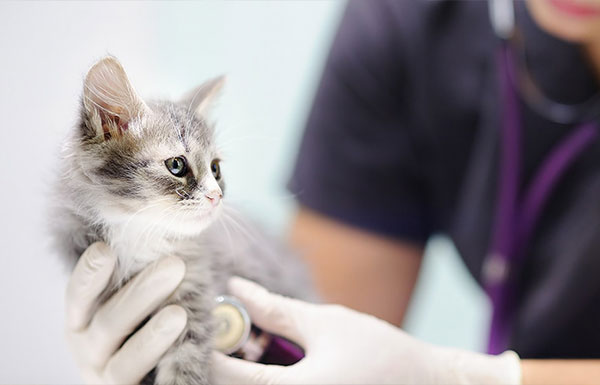In the initial weeks of a kitten’s life, typically around 4-5 weeks old, caretakers may encounter the issue of fading kitten syndrome. This situation prompts the search for answers on how to cure fading kitten syndrome at home. It’s a scenario where a little kitten’s health takes a nosedive, catching everyone by surprise. About 30% of newborn kittens might face this challenge, and spotting it can be tricky.
The tricky part is even with a caring mom around, a kitten can get sick without clear warning signs. If you notice the mom cat keeping her distance from the kitten, that’s a red flag. We don’t exactly know why this happens, but the key is catching it early and acting fast to help the kitten.
Handling fading kitten syndrome might mean stepping in and doing things like tube feeding, which can be tricky. But the crucial thing is to act swiftly to give the kitten the best chance at getting better and thriving. So, keeping a watchful eye for any signs and being ready to step in if needed is essential when dealing with fading kitten syndrome. After all, a quick response can make all the difference in turning the tide for these tiny, vulnerable creatures.
Causes and Why it Happens
Finding signs of fading kitten syndrome can be hard, with about 80% of cases not having a clear reason. Problems during birth, infections, or genes can be behind it. Look out for signs like weakness, tiredness, trouble breathing, and a not-so-shiny coat.
Symptoms of Fading Kitten Syndrome
Fading kitten syndrome exhibits symptoms like weakness, lethargy, and a dull coat. Early signs may include failure to gain weight and decreased interest in feeding.
Key Symptoms
- Weakness and fatigue
- Kitten lethargic Labored breathing
- Hypothermia (body temperature below 99° F)
- Excessive calling or lack of meowing
- Dull hair coat
- Gasping for breath; mouth-breathing
- Diarrhea
Curing Fading Kitten Syndrome at Home
Thinking about how to cure a fading kitten syndrome at home, act fast. Warm them up with a towel and a heating pad, and if they seem tired, put honey or sugar water on their gums. These are temporary fixes until you can get them to the vet.
Fading kitten syndrome is not a singular issue but rather a term encompassing the rapid onset of illness in a kitten. Acting early and getting help from the vet can make a big difference. If you see signs of fading kitten syndrome in your little one, talk to the vet for help and advice.
Preventing Fading Kitten Syndrome
Strict Monitoring
Regularly weighing your kitten is a simple yet effective protocol. Kittens should gain 0.35 ounces daily. Lack of weight gain signals potential issues. Use a suitable scale for accurate monitoring of their health.
Observation for Signs
Beyond weight checks, observe your kitten’s behavior. Lethargy, disinterest in feeding, and exclusion from litter activities may be early signs of trouble in a cat. A watchful eye is your best tool for catching issues before they grow stronger.
Overall Health Maintenance
A critical aspect of maintaining your kitten’s overall health is preventing parasites. Regularly administer vet-recommended parasite treatments to safeguard your kitten from potential infections. Parasites can contribute to fading kitten syndrome, so proactive prevention is key.
Early Intervention
Don’t misjudge the power of early intervention if you notice anything unusual about your kitten’s behavior, feeding patterns, or overall well-being. Seek advice from your vet promptly. It’s natural to worry about whether you’re overreacting, but vets understand the rapid progression of health issues in young kittens and appreciate proactive pet parents.
Watching over and keeping your pet healthy shows how devoted you are as a pet owner. By staying attentive and taking swift action when needed, you contribute notably to the well-being of your precious furry companion.
In summary, fading kitten syndrome can be tough for little kittens, making them weak and having trouble breathing. Acting fast, keeping them warm, and seeing vets are super important in learning how to save a kitten from dying.
To stop it, watch them closely, prevent parasites, and act early. Your commitment ensures a happy, healthy kitty friend.

Can you be more specific about the content of your article? After reading it, I still have some doubts. Hope you can help me. https://www.binance.info/register?ref=IHJUI7TF